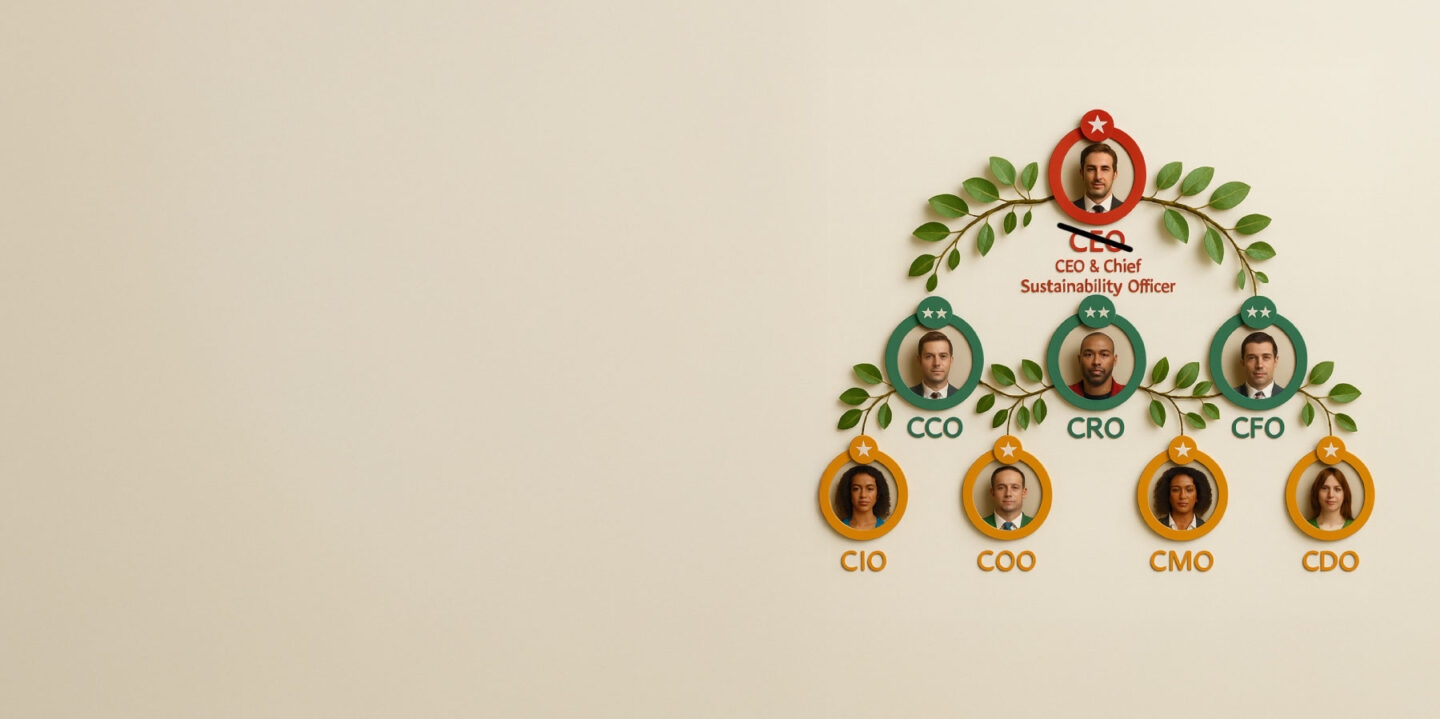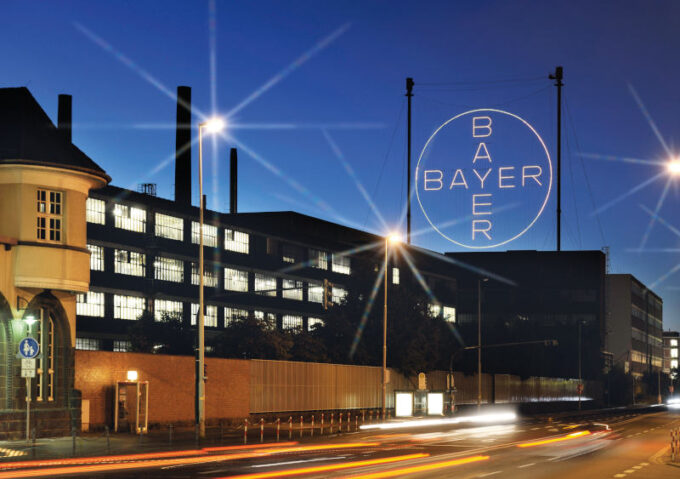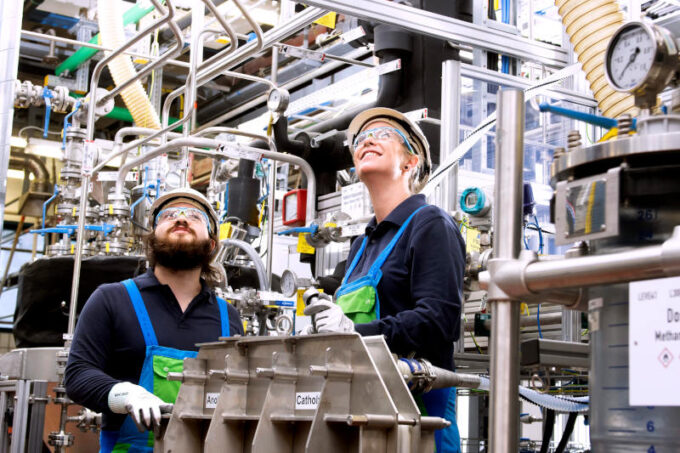The solution: Rewiring the system from the inside out
Transforming a company like Bayer doesn’t start with slogans. It starts with structure. In 2019, Bayer made a quiet but radical shift that would come to shape its entire sustainability journey. The CEO also became the Chief Sustainability Officer. That move wasn’t symbolic. It signaled that climate, social impact, and long-term resilience were now embedded in the core of how Bayer operates.
“What makes the difference at Bayer,” explains Schneiders, “is that our CEO is also our CSO.” In practical terms, that meant sustainability was no longer a separate initiative or departmental target. It became a board-level mandate, influencing how capital is allocated, how products are developed, and how success is measured across the company.
This top-down alignment enabled the creation of Bayer’s impact generator strategy, a framework that ties environmental, social, and governance performance directly to business outcomes. Each of Bayer’s three divisions is now responsible for clear sustainability targets. These include reducing Scope 1 and 2 emissions by 42% by 2030, reaching full carbon neutrality in operations, and lowering the environmental impact of crop protection by nearly a third. The targets are integrated into business unit plans and executive scorecards. Progress is tracked, audited, and reported with the same rigor as financial results.
But strategy on paper doesn’t move culture. That required something more personal. And that’s where Dynamic Shared Ownership (DSO) comes in. Launched in 2023, DSO is less a process than a mindset. It invites teams to step into shared responsibility, flatten hierarchies, and move faster. Instead of decisions moving slowly through chains of approval, cross-functional groups are assembled around specific problems. Their task is simple: solve it, own it, and deliver results.
Schneiders led one of the early DSO teams focused on Bayer’s carbon transition plan. In just six months, the team built a new decarbonization pathway, a process that might have taken more than a year under traditional structures. “With DSO, we get the right people in the room. We define the goal, and we get to work,” he says. “You don’t wait for permission. You create progress.”
The model is still taking root. Not everyone finds it intuitive. For some, it requires letting go of established ways of working and embracing ambiguity. But for those who step in, it’s shifting how sustainability is perceived – not as an add-on, but as a core business objective that demands creativity, urgency, and cross-functional ownership.
Technology is helping underpin that change. Bayer now monitors more than 400 environmental indicators across its operations, but the focus has sharpened around six strategic KPIs. These cover not just emissions and energy use, but also topics like gender equity and support for smallholder farmers. The KPIs act as a compass, guiding decision-making and helping leaders stay accountable to both internal goals and external expectations.
None of this is positioned as a quick fix. Bayer isn’t claiming victory. But it is doing the hard work of rebuilding credibility from within. And in doing so, it’s starting to shift the story. Not just about what it makes, but about how it works, who it empowers, and what kind of future it is trying to build.









